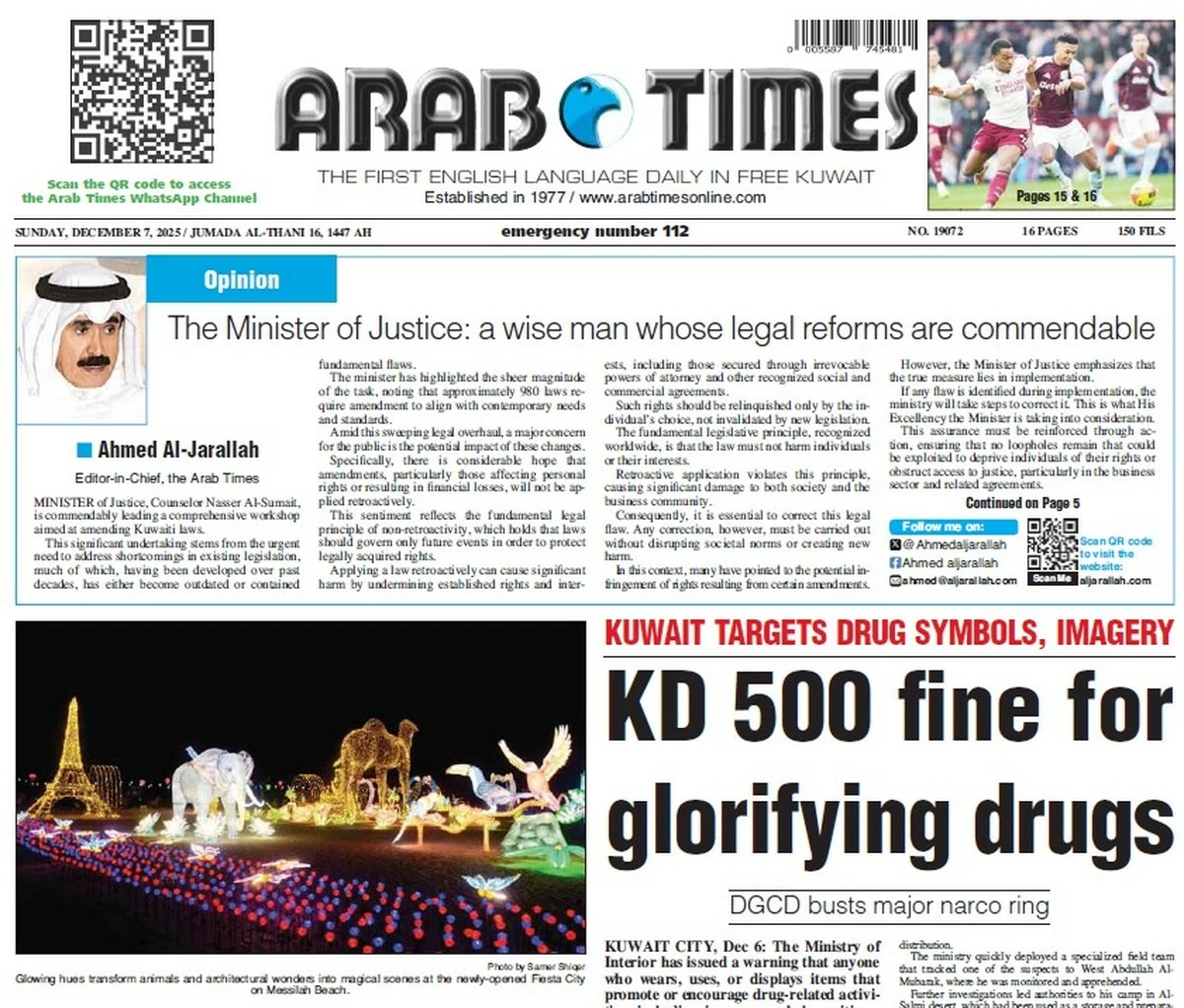17/11/2025
17/11/2025

KUWAIT CITY, Nov 17: The Chairman of the Kuwait Anti-Corruption Authority (Nazaha), Abdulaziz Al-Ibrahim, on Monday emphasized the Authority’s commitment to involving all national stakeholders in implementing its new strategy project.
Speaking at a workshop titled "Towards a New Strategic Framework for Enhancing Integrity and Combating Corruption in Kuwait," Al-Ibrahim said the initiative includes the public and private sectors, civil society organizations, oversight bodies, and law enforcement agencies, all of which will contribute to shaping the strategy.
“This series of consultative workshops contributes to stimulating discussion and shaping shared and integrated visions regarding the directions of the upcoming strategy and its key components, including the vision, mission, and general objectives, as well as the specific objectives of the participating entities,” he said.
Al-Ibrahim added that the workshop provides a specialized platform for entities responsible for essential services, allowing them to contribute to the strategy in line with Kuwait Vision 2035 and the country’s commitments under the United Nations Convention against Corruption.
He explained that the workshop focuses on enhancing the quality of public services, ensuring fair and equal access for all citizens and residents, strengthening public trust in institutions, and optimizing resource use based on transparency, accountability, participation, and the rule of law. The initiative also aims to establish institutional safeguards against corruption risks, following international standards and comparative experiences.
Emma Morley, Resident Representative of the United Nations Development Programme (UNDP) in Kuwait, highlighted the importance of shared responsibility in promoting integrity. “No single entity can lead this transformation alone. National strategies are essential for defining roles and tasks, distributing responsibilities among all stakeholders, and fostering a sense of shared responsibility,” she said.
Morley noted that the workshops are crucial for bringing together different sectors to exchange perspectives, define roles, and formulate a strategy that enhances trust and creates sustainable impact in Kuwait. She added that the UNDP is proud to support this national effort in cooperation with Nazaha and the General Secretariat of the Supreme Council for Planning and Development to ensure every voice contributes to building a more transparent and accountable future.


